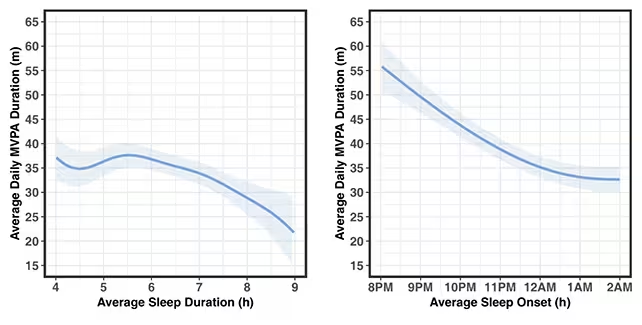4 Minutes
New Research Connects Earlier Bedtimes to Higher Physical Activity Levels
A landmark study from researchers at Monash University in Australia has revealed a compelling link between going to bed earlier and increased physical activity the following day. This large-scale investigation, utilizing wearable technology, sheds new light on how subtle adjustments to our evening routines could have significant impacts on our health and exercise habits.
Scientific Context: The Sleep–Exercise Nexus
Sleep science and exercise physiology have long recognized the importance of both quality rest and regular movement for physical and mental health. However, much less is understood about how sleep timing—specifically, the hour at which we go to bed—might influence our motivation and capacity for physical activity the next day. This new research bridges that gap by examining real-world sleep patterns and subsequent exercise behavior on a massive scale.
Study Design: Harnessing Wearable Technology for Deep Insights
To uncover potential connections between sleep timing and next-day activity, researchers gathered data from 19,963 participants over a full year, logging nearly six million individual sleep–activity cycles. These individuals wore devices that automatically tracked both their nighttime sleep and daytime activity levels.
"These insights carry meaningful implications for public health," notes psychologist Josh Leota of Monash University. He suggests that instead of treating sleep and exercise as separate health behaviors, public health campaigns could emphasize how adjusting bedtime may naturally promote more active lifestyles.
Key Findings: Early Sleepers Move More
The analysis revealed a clear trend: individuals who went to bed earlier consistently engaged in more moderate-to-vigorous physical activity the subsequent day. For example, participants with a 9:00 pm bedtime averaged 30 minutes more exercise than those settling in at 1:00 am, and 15 minutes more than those with an 11:00 pm bedtime—the overall average bedtime in the cohort.
Sleep duration also played a significant role. Interestingly, those who averaged 5 hours of sleep logged nearly 42 minutes more physical activity than those who slept 9 hours; however, researchers caution that the negative effects of sleep deprivation may outweigh these gains in activity.
Most notably, individuals who went to bed earlier than their personal norm—while maintaining their usual amount of sleep—achieved their highest daily physical activity. This finding held even after accounting for age, body mass index, and day of the week.

Why Might Earlier Bedtimes Foster Activity?
The researchers speculate on several mechanisms. Later bedtimes might signal overall busier schedules, leaving less opportunity or motivation to exercise. Additionally, early sleepers may find it easier to wake up and start their day energetically, maximizing their window for physical activity. Social and work schedules, particularly standard 9-to-5 routines, can conflict with natural “evening” chronotypes, creating so-called “social jetlag” that impairs sleep quality and daytime alertness.
Robustness and Limitations of the Findings
To ensure their results weren’t unique to the initial sample, the team confirmed the trend in a second, diverse cohort of nearly 6,000 participants. Still, the study is observational and can only establish correlation—not causation. It’s possible, for example, that those with a tendency to be 'night owls' are both more likely to stay up late and less likely to exercise, due to underlying biological or behavioral patterns.
Researchers emphasize the need for further investigation to disentangle these contributing factors. Yet, the evidence remains compelling: a simple decision to retire earlier, without sacrificing total sleep time, appears to set the stage for a more active day.
Expert Perspectives and Broader Implications
"Sleep and physical activity are both crucial to our well-being, but until now, we haven’t fully understood how closely intertwined they are in daily life," says psychologist Elise Facer-Childs, a co-author of the study. "Our findings, which are consistent across different populations, show that simply moving your bedtime forward—while keeping your sleep duration steady—can make a noticeable difference in next-day physical activity."
These results suggest new strategies for health professionals and individuals aiming to optimize both sleep and exercise. By viewing bedtime not just as a means for rest, but as an influential lever for daily activity, people may discover a straightforward path to improved health.
Conclusion
In summary, the Monash University study underscores the deep interconnection between our sleep habits and daily exercise—offering robust evidence that earlier bedtimes can encourage greater physical activity. While more research is needed to understand all underlying mechanisms, this insight offers an actionable tip for anyone looking to enhance their well-being. As science continues to explore the intricate dance between sleep, exercise, and overall health, even minor adjustments to our routines can have outsized impacts on our vitality and longevity.
Source: doi



Comments